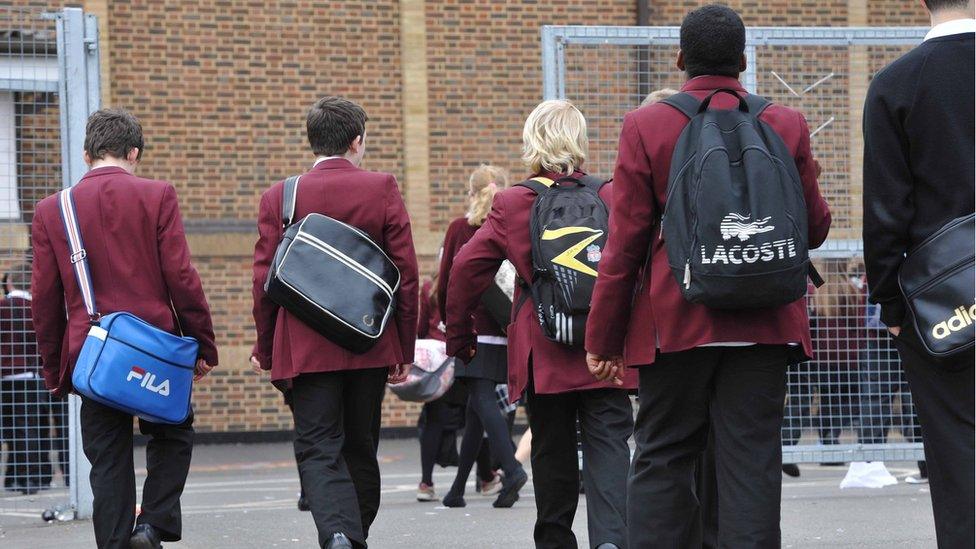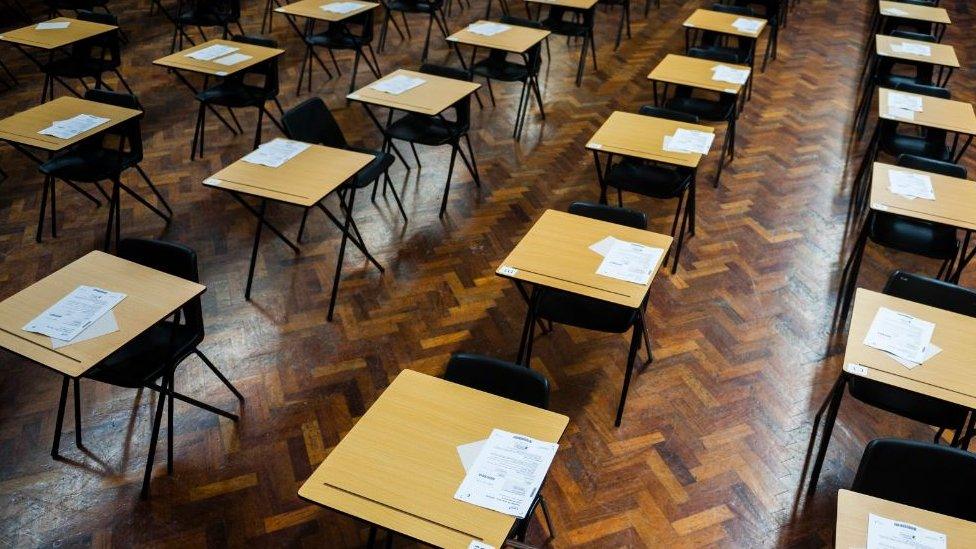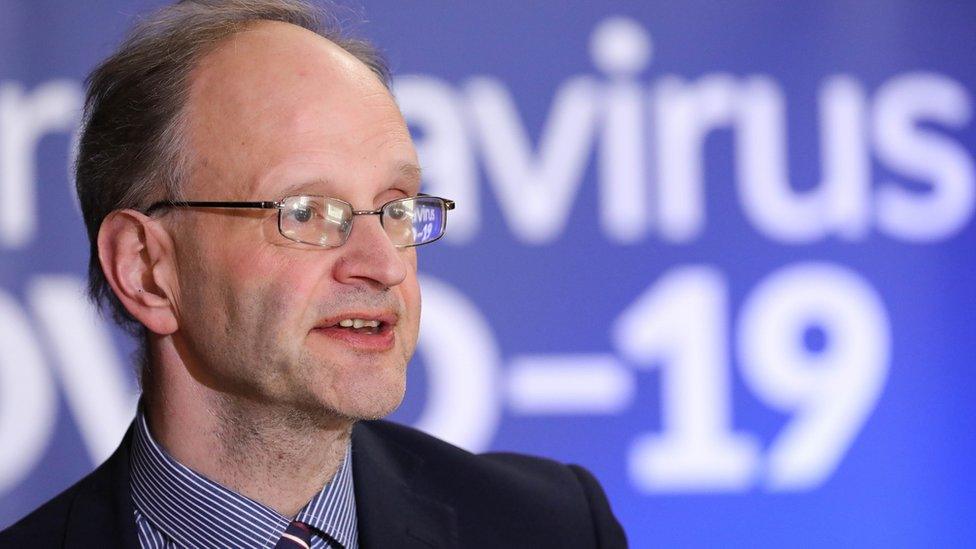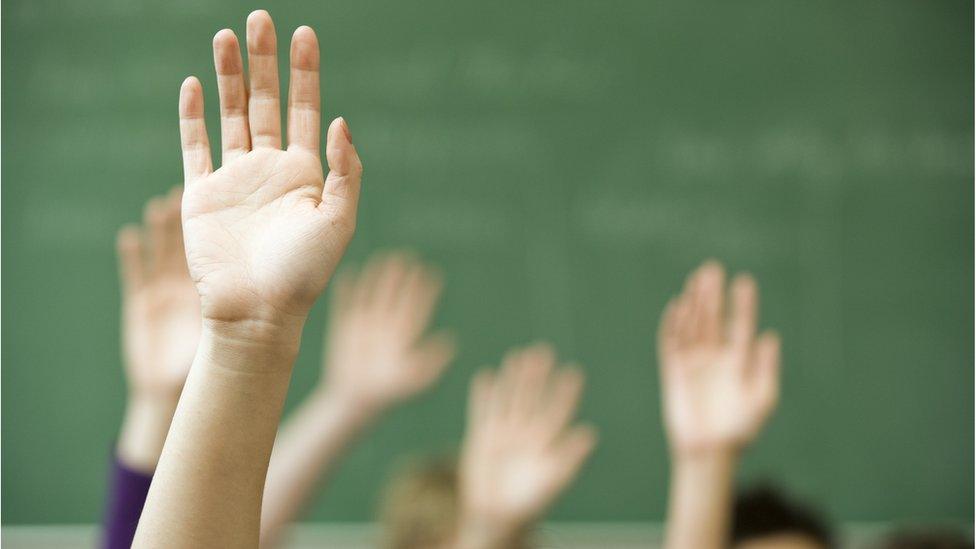Covid-19: Schools get more time to decide on admission criteria
- Published
- comments

Post-primary schools have been given extra time to decide how they will admit pupils in 2021 following the cancellation of transfer tests.
On Wednesday the AQE said it would not hold any transfer tests in the 2020-21 school year.
They had originally planned to go ahead with a test in late February after cancelling tests in January.
The other test provider, PPTC, had also previously announced it would not hold tests this year.
Attention will now focus especially on what criteria grammar schools will use to select pupils.
Some have already published what criteria they would use in the event transfer tests were cancelled but it is not clear if those will now change.
All post-primaries were to submit their admissions criteria to the Education Authority (EA) by this Friday.
But following the AQE's move the Department of Education (DE) has written to schools to tell them they do not have to provide criteria to the EA until Friday 22 January.
"This will allow them to meet the statutory deadline for publication on their website of 2 February 2021," the DE letter said.
"I would also remind you that boards of governors should ensure that any admissions criteria are robust and are able to clearly and objectively rank order applicants."
It is unclear how most grammar schools who have used transfer tests to select pupils in previous years will admit children in 2021.
Patrick Allen, principal of Foyle College in Londonderry, said his school's board of governors was now working to determine this year's admissions criteria.
"This is and continues to be an exceptional year. It is a very difficult circumstance," he said.
"We are trying to do the best and what is right for as many pupils as possible in looking at various permutations and combinations of criteria".

Education Minister Peter Weir said it was "a very disappointing day" for many families.
"The transfer test, while it has never been about being compulsory for either a school or indeed an individual parent, does enable a level of parental choice and that has been dramatically reduced as a result of that," he told Radio Ulster's Good Morning Ulster programme.
"But sadly what we have seen is for this year, the pandemic has prevented those transfer tests taking place, and I am very disappointed and entirely understand the disappointment and frustration of many families today."
Mr Weir said there had been "a lack of consistency" from AQE.
"I don't think the way things have worked out from AQE's point of view, particularly over the last couple of weeks, have been particularly helpful," he said.

The education minister apologised for "clumsy language"
The minister also apologised for "clumsy language" in a statement he issued on Wednesday night.
Writing on Twitter about the cancellation of the transfer test, Mr Weir said: "This severely limits parental choice and children's opportunities."
"There was no adverse intention towards non-selective schools," he said in relation to his tweet.
"I think both selective and non-selective schools have got excellent records in Northern Ireland."
"But once the opportunities for entry to any school is reduced then that is a reduction in opportunities for all."
'Major problems'
UUP MLA Robbie Butler has proposed that pupils' results in tests in primary schools could be given to parents and then used by grammar schools to decide which children get a place.
Mr Butler said that he had some favourable responses from some grammars and some primary schools to that proposal.
"Whilst I don't think my solution is absolutely perfect I do believe it to be absolutely fair and absolutely compassionate," he told MLAs on the committee.
"We have the genesis of a solution for these P7 pupils."
But, speaking on Wednesday, Mr Weir replied that there were issues with that approach.
"There are very major problems, I'm being honest with you, in terms of the models that have been put forward for academic selection without the test," he said.
The minister said it would be difficult to get comparable information for pupils across all primaries.
"While it's not entirely ruling out those and there is the option for schools to do it, it does leave them in a very difficult position making comparability between pupils on a fair basis," he said
Related topics
- Published13 January 2021
